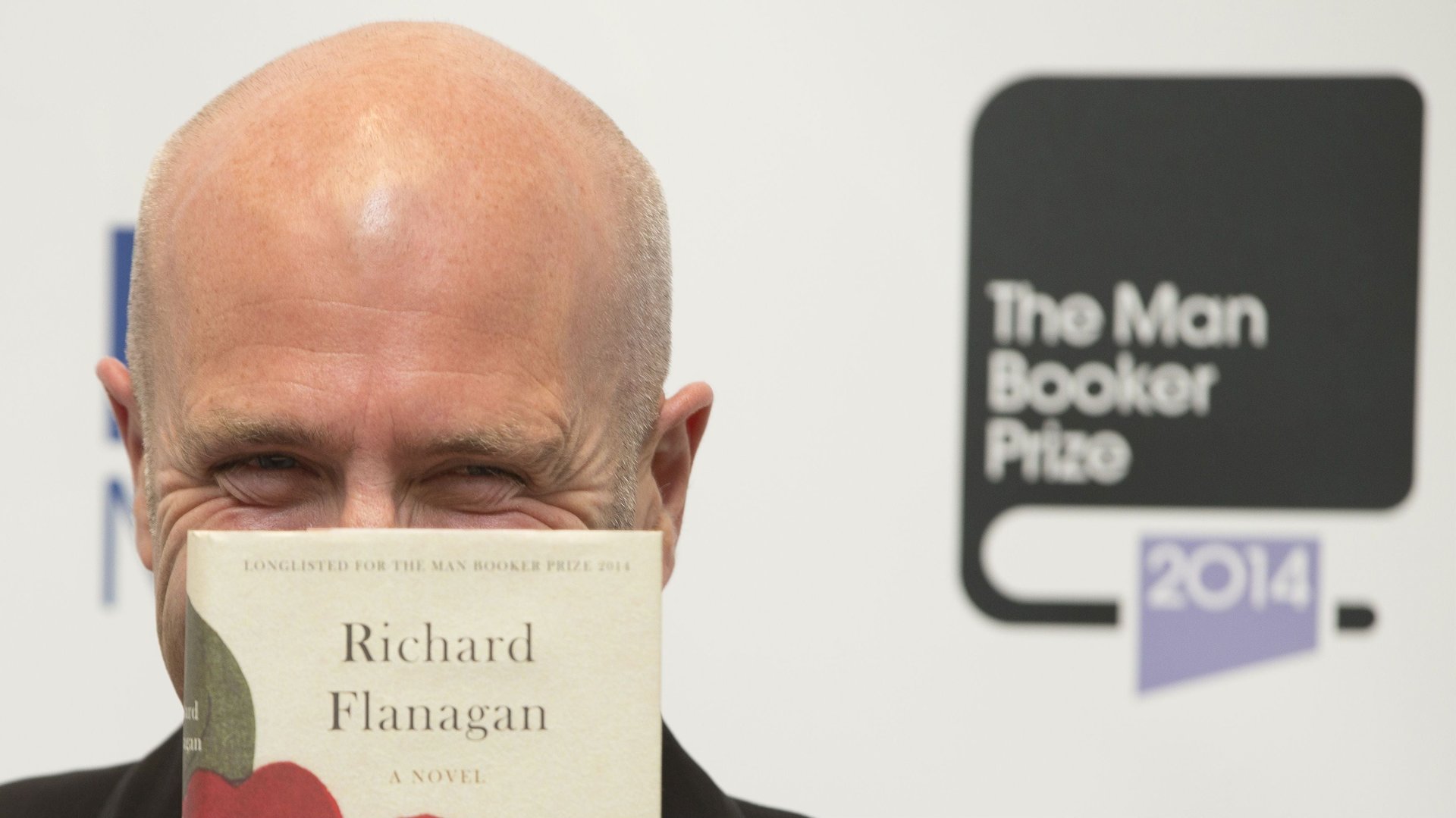How we predicted the winner of the Man Booker Prize with tweets
Who won the World Cup? The favorite: Germany.


Who won the World Cup? The favorite: Germany.
Who won the last US Presidential election? The favorite: Barack Obama.
Some contests are easy to forecast, others, like books or movie awards are notoriously difficult to predict. Of all the book awards out there, the Man Booker Prize—presented in London each year to a work of fiction written in English—is surely the toughest to call.
The apparently random allocation of the prize by the six-person jury for many years led an exasperated Julian Barnes to dub the competition “posh bingo” before he himself won the award in 2011.
At BookVibe, we scan more than 500 million tweets every day to identify the 0.04% that reference books.
We started to wonder if these tweets—many of them by influential accounts—would tell us something deeper about the books on the shortlist.
We were shocked by what we found.
The favorite, Neel Mukherjee’s The Lives of Others, was not getting a lot of attention. In fact, it had the lowest number of tweets of all the finalists.
The Booker prize rarely follows the bestseller lists, so we had a look at the influence of these tweeters (something we can calculate for any Twitter account) and worked out how strongly these tweets would have influenced public opinion.
J by Howard Jacobson was being read by TV chef Nigella Lawson (679,000 followers), We Are All Completely Beside Ourselves picked up support from TV actress Daphne Zuniga (46,000 followers) but The Narrow Road to the Deep North stole the show with a ringing endorsement from Senator John McCain (1.9 million followers).
Obviously, the prize is not simply a popularity contest, so we next looked at the effect the book had on people. Tweets may be short, but it became apparent very quickly that it was Richard Flanagan’s The Narrow Road to the Deep North—a fictionalized account of his grandfather’s time as a prisoner of war of the Japanese during the World War II—that moved people most deeply.
We started to have a feeling that it might be Flanagan’s year but there was one crucial piece of evidence left—who had the momentum? Once again, there was a stand-out leader with Flanagan picking up twice as many mentions in the immediate run-up to the announcement as some of his rivals for the crown.
We spotted these trends and made our prediction a whole week ahead of the official decision—confounding many critics, pundits and the bookies in the process.
There are huge opportunities to use the wisdom of this crowd to answer many of the questions we have—the difficulty is identifying who to listen to amidst a sea of noise.
Our next small step to understand this better will see us focus on the National Book Awards in the US where winners in five categories will be announced on Nov. 19. After that we’ll apply our techniques to films to see what we can do for the Oscars—we’ve already managed to predict box office takings based on Twitter activity around a film, so we’re feeling somewhat confident, for now.